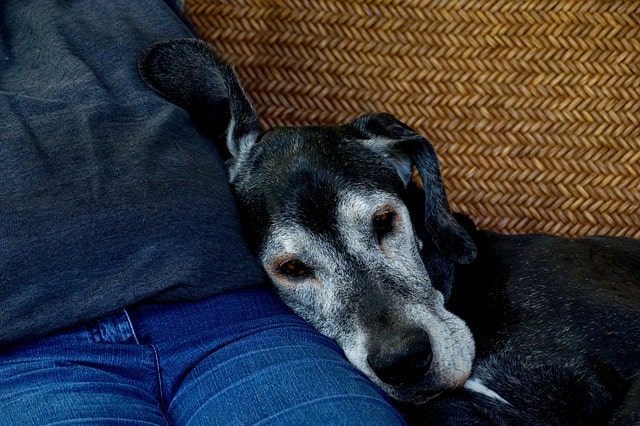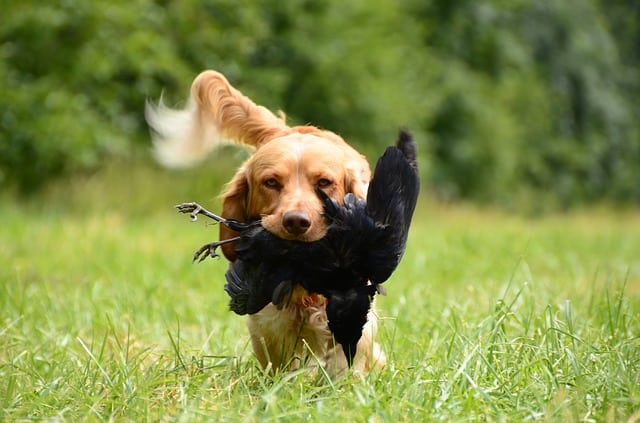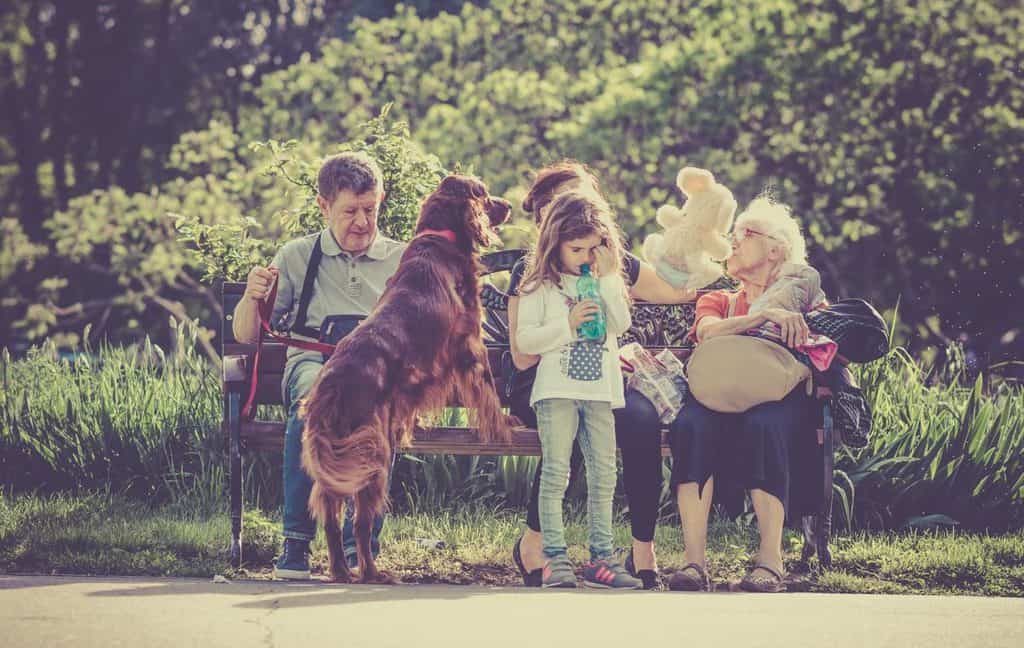How To Adopt a Dog That Suits Your Family
Buying a dog or choosing to adopt a dog or a puppy is a big decision for many people.
The decision to give a dog a home has long-term consequences.
You need to be ready to provide that adopted pet with a stable, loving, and healthy environment until the end of their life.
For some dogs, that could be close to twenty years.
It all may sound rather daunting but it doesn’t have to be.
In this article we cover all the factors that you need to consider such as:
Shall I adopt a dog or buy a dog?
How much does a dog cost to keep?
What breed of dog is best?
Where is the best place to get a dog?
Alright then, let’s get right to it.
[easy-social-share]
Shall I Adopt a Dog or Buy a Dog?
The decision on whether to buy or to adopt a pet can be a tough one for many of us.
I know I’m one of those people that likes to know what I’m getting myself in for and buying a puppy means I have at least some control over how that pup will grow up to behave.
For the vast majority of situations, when you take home a new puppy you only have yourself to blame if its behaviour turns bad.
Whereas an older adopted dog may have behaviours and traits that in some cases, can be difficult and expensive to treat and manage.
Some behaviour problems that you may find in surrendered older dogs may be a training issue such as excessive barking, pulling on the lead or soiling in the house.
Most of these can be rectified by appropriate training.
In contrast behaviour issues such as separation anxiety, fear aggression, food aggression can be much more difficult to manage and often require extensive investment in veterinary behaviour assistance including the use of medication and training.
While an older dog may come with some quirks, puppies are very hard work and do require a lot more effort than many older dogs that might be available for adoption.
Here are some reasons why you might choose to adopt an older dog rather than buy or adopt a puppy:
| Adopting An Older Dog | Buying/Adopting A Puppy |
|---|---|
| Learned behaviours are present | Behaviour is a clean slate – you will teach |
| Possibly may have health issues related to age | Health issues related to congenital |
| You don’t know it’s past | You condition the pup to your way of living |
| Low purchase price | The cost is generally a lot higher to purchase |
| You reduce the number of dogs euthanised for homelessness | Potentially you encourage breeding of dogs that have ‘issues’ |
| Likely to be house-trained already | Will need to toilet train, this takes time |
| Depending on age, vet costs may be low or a lot higher | Vet costs are higher in the first year |
The decision as to whether to adopt or buy may be made easier by deciding on the age of the dog that you wish to join your family.
Adopting Or Buying A Puppy

Most people think they want a puppy, but pups require a lot of time and effort.
If you cannot afford to buy a pedigree dog then you might consider adopting a pup from a shelter, however, pups are always quick to find homes, and a bit of luck is required.
Remember that pups will need a lot of training in the basics like sit, stay, come, as well as the dreaded toilet training.
We also recommend you integrate crate training into their routine to help with this whole process.
Health problems are generally less prevalent in puppies, none the less, there are some congenital issues that may show up at an early age.
We will talk more about health issues shortly.
The first year of life for a pup is a year of firsts.
The big firsts are all the vaccinations that a pup requires. This is to ensure that they are protected against some really devastating diseases.
Adopting Or Buying The Adolescent Dog
Just like we have the terrible twos and threes with children, the same can potentially occur for our pets too!
Dogs around the age of 2-3 years are often referred to as teenagers, and getting a dog at this age can potentially be troublesome.
This tends to be the age when sadly many dogs are sent to a shelter to be rehomed, usually for behavioural issues, but sometimes they may have health issues that are just too expensive for their current owner to cope with.
Behaviour issues that raise their ugly head are often related to fear aggression and separation anxiety.
Both situations can be difficult to handle and do require assistance from vets and fear-free dog trainers.
By this age, the dog has reached maturity so you can exercise freely. Going hiking, swimming etc don’t have the same restrictions that you may have with a puppy.
Adopting A Mature Dog
Dogs between the ages of 6 and 10 are often referred to as mature. Generally speaking, they are calmer, are happy to go with the flow, and are in their “prime”.
Health issues may start to rear their ugly head and preventative care is even more important.
Being diligent to keep your dog at a healthy weight and regular dental care is vitally important and can help keep your pet healthy into old age.
Like other older dogs, previously learned behaviours may cause problems. It is always wise to ask a lot of questions.
Adopting A Senior Dog

Dogs over 10 years are considered to be seniors.
The incidence of health issues is likely to be higher in these dogs.
Some common age-related disease problems include arthritis, Cushing’s disease, cardiac disease, and dental disease.
Often these dogs require daily medications to treat these problems and some of these may be expensive.
These dogs are often slower and are quite content to only receive short walks and lounge around on the couch.
They make great companions and can be extremely loyal.
This is the age when we start to see problems with canine cognitive dysfunction such as vocalisation and anxiety.
Often these dogs have needs for special diets and can have issues with toileting.
Easy access to toileting areas, where food is eaten and sleeping areas are required.
Again, these dogs may have behaviours that are difficult to train them out of. It’s not to say you can’t, but you may have to put up with them or work around it.
How Much Does A Dog Cost To Keep?
Before you decide to get a dog it is vitally important that you do your sums to work out whether you can afford to keep a dog.
Giving a dog a home is a huge responsibility.
The costs of keeping a dog (not relating to purchase) in the first year of life can be anywhere from $4200 to 5000 depending on the size of your dog.
Some examples of costs include:
Initial veterinary health expenses: Health examination, full vaccination program, worming and tick prevention, heartworm prevention, de-sexing fees, microchipping, and council fees. This can soon reach $2000/yr depending on the size of your pet.
Food: Up to $1200/yr depending on the size of the dog
Insurance: $720/yr for accident and illness
Accessories: bedding, crate, toys, food bowls up to $300
Training: puppy pre-school, obedience classes can cost from $130 to beyond $600.
After the first year of age the costs for vet care will decrease – generally speaking, you could budget around $1000/year for preventative health care and council fees.
Food costs remain pretty similar as your dog ages.
Insurance premiums generally increase as your dog ages.
It is very important to consider and budget for the costs of emergency health care for your dog if something was to go wrong.
Generally speaking, if your dog needs to stay in an ER for one night on fluids and pain relief with blood tests, urine tests, and possibly an xray or ultrasound, then you are looking at a minimum of $1600.
If you have a pet that is extremely sick and requires a blood transfusion, surgery or other extensive procedures, the cost can suddenly get very high.
For example surgery and aftercare to decompress a dachshund with IVDD may result in a fee around the $15,000 mark.
This is when pet insurance comes in very handy.
It is also wise to consider costs of putting your dog in day care or a kennel if you are going away. This can be anywhere from $50 to $100/night.
Dog walkers often charge from $60 a day.
As you can see the costs of dog ownership quickly add up.
Is owning a dog something you can afford to do?
What Breed Of Dog Is Best
This is one of those questions where you will receive 100+ different answers if you were to ask a room full of people.
The issue is that everyone has their own specific set of requirements and what is perfect for you and your family may be a disaster waiting to happen for another family.
When choosing the type of dog you might adopt or buy, there are some key considerations you must think about:
Where Do You Live?
Will your dog have a backyard to run around in? Is there a large section or a small patio for the dog to play in? Is the section fenced? Will they be in an apartment all day?
Do You Have Children?
Whether you have children already or whether you plan to have them later, it is wise to consider the breed of dog as some have behavioural traits better suited to there being no children or older children in the house.
As always, it is very much a generalisation when we say that some breeds are better than others, the key is to ensure that the energy level and temperament are well suited to your family.
The best dog breeds for families include:
- Cavalier King Charles Spaniel
- Pugs
- Bulldogs
- Golden Retrievers
- Labradors
- Poodles
- Beagles
- Boxers
- Irish setters
- Mixed breed dogs
Have You Owned A Dog Before?
It might seem like a silly question, but some dogs are very high maintenance and really do have a better life in an environment with people who understand dog behaviour and training.
Often working dog breeds are better suited with those with experience eg. German Shepherd, working Collie breeds, Kelpies.
Will Other Animals Be Living With Your Dog

Again, it’s a generalisation, but some breeds of dogs are natural hunters and may struggle when living amongst other animals like cats and chickens.
If the dog comes to you as a puppy you are often able to train them to ignore, however older dogs may not have had this training so it is important to not put your other animals at risk.
Many of the terriers have a strong will to hunt and cats and chickens can be fair game.
Some retired greyhounds can also not be trusted.
What Kind of Personality Would You Want Your Dog To Have?
Are you looking for a dog that acts as a protector or would you love a dog that is friends with everyone?
Do you prefer a dog that will laze with you all day on the couch or one that will run 10km with you through the mountains?
Does Your Dog Need To Be Quiet?
There is nothing worse than the dog that barks all the time.
If you live in the country with no neighbours this is unlikely to be an issue. But for those that are in an apartment, it can cause tensions between neighbours to rise.
Some dogs such as Maltese and Poodles are renowned barkers. Choose wisely or you will be hated in your neighbourhood.
How Often Will You Be Able To Walk Your Dog?
Dogs require a minimum of 30min of exercise a day, while others benefit from a lot more.
Do you have the time or the financial means to pay someone to exercise your dog every day?
How Much Time Will You be Able to Spend With Your Dog?
Some dogs require a lot more human interaction than others. While some are quite happy to hang at home by themselves, others may fret and become destructive.
French Bulldogs are renowned for having separation anxiety issues. If the majority of your day is spent at work, then choose a dog that is a bit nonchalant about your presence.
How Much Training Will You Give Your Dog?
While most people are quite prepared to do the basics, others really enjoy the challenge of advanced training or sports with their dogs. Some dogs are more suited to this than others.
Working dog breeds like Kelpies, Border Collies, Vizsla and German Shorthaired Pointer do enjoy having “jobs” and if left to their own devices can develop behavioural problems.
What Size Dog Interests You?
When thinking about the size of the dog you also need to consider the temperament and energy level.
A big goofy energetic labrador may be too big to handle, while a similar goofy and energetic medium-sized spaniel may be just fine.
Big dogs generally cost more to keep. They take up more room and generally aren’t as easy to find someone to care for them if an emergency arises.
Giant breeds have a shorter lifespan, with many dying by the age of 8 years.
Large and giant breeds also tend to have more musculoskeletal issues such as arthritis, especially in their hips. This requires extra care as they age.
A smaller dog can be easier to control, especially if you not very strong or sturdy on your feet or you have children.
Smaller breeds also tend to live longer.
Do You Have Time For Grooming?
Some breeds require extensive grooming to keep their coat in tip-top condition. Some breeds do better in cooler regions especially those with a thick, dense coat.
Remember that breeds such as Schnauzers and Poodles require clipping and this is an extra cost to budget for.
It’s also wise to consider whether anyone in your family has an allergy and/or you require a dog that doesn’t shed its coat.
Are you precious about your furniture and clothing and will dog hair drive you insane?
Many people will love to tell you that an “oodle” will be hypoallergenic and will not shed hair. Unfortunately, this is a myth. These crossbred “oodles” are more than likely to shed and very few are hypoallergenic.
Where Is The Best Place to Buy a Dog?
Let’s start with the places you should never buy a dog from (even it is free):
Puppy Farms/Backyard Breeders
Always check the background of a breeder and insist on seeing the pups with the parents where they have been kept and reared.
[easy-tweet tweet=”Always check the background of a breeder and insist on seeing the pups with the parents where they have been kept and reared #adoptdontshop #dogs” usehashtags=”yes”]
Pet Shops
While some pet shops do have veterinarians who will vaccinate and worm, there is no guarantee about the health of these dogs, how they were bred (were they from a puppy farm?) or whether they may have poor breeding so possibly will suffer from hereditary issues such as hip dysplasia.
Online Or Newspaper Classifieds
While some businesses are completely above board and ethical, some, unfortunately, are attached to puppy farms.
Sadly, there are often stolen pets that are advertised this way so it is always wise to stay clear and purchase from a reputable charity shelter or breeder.
Random People
Picking up a dog from a car park or random backyard somewhere is not a great idea.
You don’t know the history of the dog and it is quite possible it may be stolen or have severe health or behavioural issues.
Free Dogs
Again, some free dogs may be perfectly legitimate, however, the vast majority have health or behavioural issues.
When looking to purchase a dog it is always a great idea to research the breeder or charity shelter to check that they are legitimate.
For shelter charities, you want to ensure that they are registered and the dogs receive health and behaviour examinations. Ideally, the charity will take time to ask you about your needs and family life so that they can match a dog that will fit in well.
If purchasing from a breeder check to make sure they are members of the kennel club. Ask to see both parents and where the puppies have been brought up.
You want to see papers and you want to ask about health testing that has been performed on the parents.
REMEMBER a health check performed by a veterinarian when vaccinating ensures the pet is fit to be vaccinated. It doesn’t necessarily mean they have no genetic or conformation issues.
It is always a good idea to get an independent veterinary assessment (not by the breeder’s vet) to check for problems that may have long-term consequences. A second opinion to help you interpret any findings is something our vets offer.
As you can appreciate there are many things to be considered before deciding on getting a dog. Whether the dog will be bought or whether you decide to adopt a pet, it’s important to understand the responsibilities you will have.
Tell us below, did you buy or adopt your dog? Was it a senior or a younger dog or a puppy? We’d love to hear your stories, they may just encourage someone to give a dog a home.
[easy-social-share]






Love all these tips. Thanks for sharing!